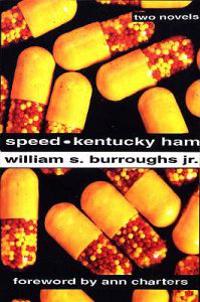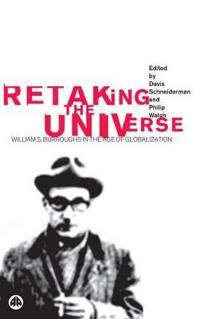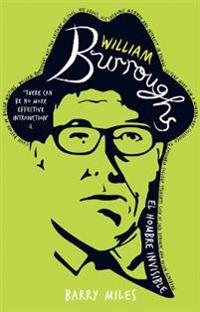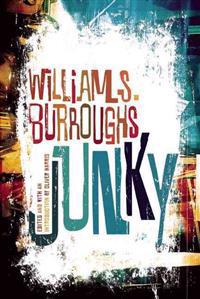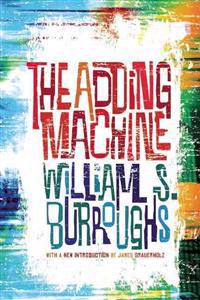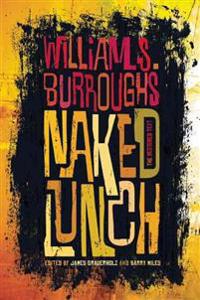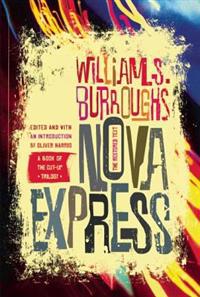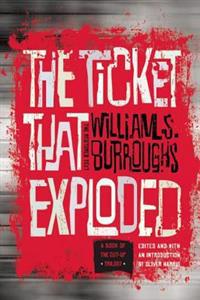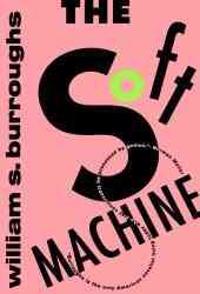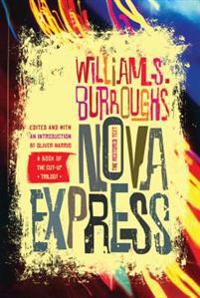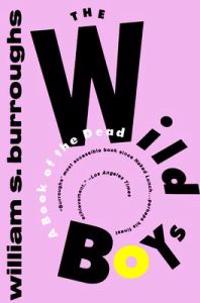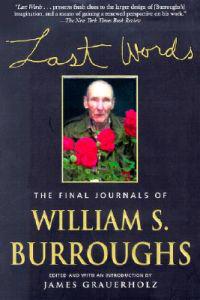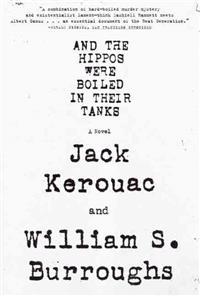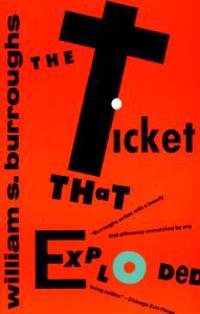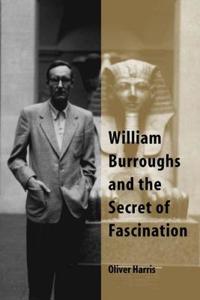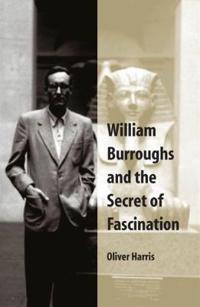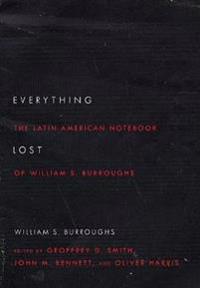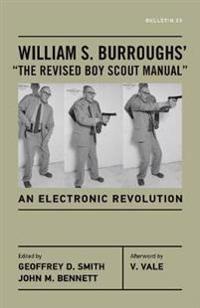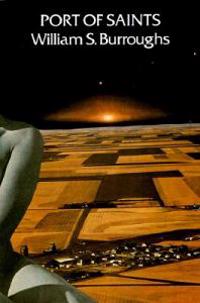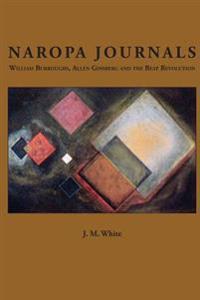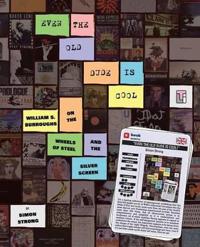Wising Up the Marks: The Amodern William Burroughs (Övrig)
avTimothy S. Murphy
ISBN: 9780520209510 - UTGIVEN: 1997-12-17William S. Burroughs is one of the twentieth century's most visible, controversial, and baffling literary figures. In the first comprehensive study of the writer, Timothy S. Murphy places Burroughs in the company of the most significant intellectual minds of our time. In doing so, he gives us an imm[...]
Speed (Häftad)
avJr. William S. Burroughs
ISBN: 9780715636343 - UTGIVEN: 200704"Speed" follows Billy as he hustles for dope and money, crashing in garbage-strewn apartments and guiding a paranoid friend through the perilous city streets. With tough, gritty detachment, he describes the stages of his own drug addiction and physical and emotional deterioration. "Kentucky Ham" tak[...]
Retaking the Universe: William S. Burroughs in the Age of Globalization
ISBN: 9780745320823 - UTGIVEN: 2004-09William S. Burroughs is one of America's most influential and widely studied writers. A leading member of the Beat movement, his books and essays continue to attract a wide readership. His films, paintings, recordings and other projects that grew out of his literary production, together with his ico[...]
William Burroughs (Storpocket)
avBarry Miles
ISBN: 9780753507070 - UTGIVEN: 200209Iconoclast; visionary; homosexual crusader; drug advocate; teacher and elder statesman to Jack Kracouac, Allen Ginsberg and the Beats; anti-hero guru to each successive counter-culture generation: Willaim Burroughs remains one of the most complex and controversial American writers of the twentieth c[...]
Junky (Häftad)
avWilliam S Burroughs
ISBN: 9780802120427 - UTGIVEN: 201210"Junk is not, like alcohol or a weed, a means to increased enjoyment of life. Junk is not a kick. It is a way of life."
In his debut novel, "Junky," Burroughs fictionalized his experiences using and peddling heroin and other drugs in the 1950s into a work that reads like a field report f[...]Naked Lunch: The Restored Text (Häftad)
avWilliam S. Burroughs, James Grauerholz, Barry Miles
ISBN: 9780802122070 - UTGIVEN: 201307Nova Express (Häftad)
avWilliam S. Burroughs, Oliver Harris
ISBN: 9780802122087 - UTGIVEN: 2014-03The most ferociously political and prophetic book of Burroughs's "cut-up" trilogy, "Nova Express" fires the reader into a textual outer space the better to see our burning planet and the operations of the Nova Mob in all their ugliness. As the new edition demonstrates, the shortest of the three book[...]
The Ticket That Exploded (Häftad)
avWilliam S. Burroughs, Oliver Harris
ISBN: 9780802122094 - UTGIVEN: 2014-03As this new edition reveals, the cultural reach of "The Ticket That Exploded" has expanded with the viral logic of Burroughs's multimedia methods, recycling itself into our digital environment. A last chance antidote to the virus of lies spread by the ad men and con men of the Nova Mob, Burroughs's [...]
Soft Machine (Häftad)
avWilliam Burroughs
ISBN: 9780802133298 - UTGIVEN: 199401In Naked Lunch, William S. Burroughs revealed his genius. In The Soft Machine he begins an adventure that will take us even further into the dark recesses of his imagination, a region where nothing is sacred, nothing taboo. Continuing his ferocious verbal assault on hatred, hype, poverty, war, burea[...]
Nova Express (Häftad)
avWilliam Burroughs
ISBN: 9780802133304 - UTGIVEN: 199401The Soft Machine introduced us to the conditions of a universe where endemic lusts of the mind and body pray upon men, hook them, and turn them into beasts. Nova Express takes William S. Burroughs's nightmarish futuristic tale one step further. The diabolical Nova Criminals--Sammy The Butcher, Green[...]
The Wild Boys (Häftad)
avWilliam S. Burroughs
ISBN: 9780802133311 - UTGIVEN: 199401"The Wild Boys" is a futuristic tale of global warfare in which a guerrilla gang of boys dedicated to freedom battles the organized armies of repressive police states. Making full use of his inimitable humor, wild imagination, and style, Burroughs creates a world that is as terrifying as it is fasci[...]
Last Words (Häftad)
avWilliam S Burroughs
ISBN: 9780802137784 - UTGIVEN: 200101Laid out as diary entries of the last nine months of Burroughs's life, "Last Words" spans the realms of cultural criticism, personal memoir, and fiction. Classic Burroughs concerns--literature, U.S. drug policy, the state of humanity, his love for his cats--permeate this poignant portrait of the man[...]
And the Hippos Were Boiled in Their Tanks (Häftad)
avWilliam S. Burroughs, Jack Kerouac
ISBN: 9780802144348 - UTGIVEN: 200910Published for the first time more than 60 years after it was written, "And The Hippos Were Boiled in Their Tanks" is a remarkable piece of American literary history that brings to life a shocking murder at the dawn of the Beat Generation.[...]
The Ticket That Exploded (Häftad)
avWilliam Burroughs
ISBN: 9780802151506 - UTGIVEN: 199401In The Ticket That Exploded, William S. Burroughs's grand "cut-up" trilogy that starts with The Soft Machine and continues through Nova Express reaches its climax as inspector Lee and the Nova Police engage the Nova Mob in a decisive battle for the planet. Only Burroughs could make such a nightmare [...]
William Burroughs and the Secret of Fascination
ISBN: 9780809324842 - UTGIVEN: 2003-04Examining the major works of Burroughs from the 1950s, Harris pieces together a material record of his creative history through an examination of his letter writing in real life, and in his fiction. Thus, the book suggests new ways to comprehend Burroughs's unique work and politics.[...]
William Burroughs and the Secret of Fascination (Häftad)
avOliver Harris
ISBN: 9780809327317 - UTGIVEN: 200611Everything Lost: The Latin American Notebook of William S. Burroughs, Revised Edition (häftad)
ISBN: 9780814253830 - UTGIVEN: 2017-05In late summer 1953, as he returned to Mexico City after a seven-month expedition through the jungles of Ecuador, Colombia, and Peru, William Burroughs began a notebook of final reflections on his four years in Latin America. His first novel, Junkie, had just been published and he would soon be back[...]
William S. Burroughs' "the Revised Boy Scout Manual": An Electronic Revolution (häftad)
ISBN: 9780814254899 - UTGIVEN: 2018-09Before the era of fake news and anti-fascists, William S. Burroughs wrote about preparing for revolution and confronting institutionalized power. In this work, Burroughs' parody becomes a set of rationales and instructions for destabilizing the state and overthrowing an oppressive and corrupt govern[...]
The Yage Letters Redux (Häftad)
avWilliam S. Burroughs, Allen Ginsberg
ISBN: 9780872864481 - UTGIVEN: 200512In January 1953, William S. Burroughs began an expedition into the jungles of South America to find "yage," the fabled hallucinogen of the Amazon. From the notebooks he kept and the letters he wrote home to Allen Ginsberg, Burroughs composed a narrative of his adventures that later appeared as "The [...]
Naropa Journals: William Burroughs, Allen Ginsberg and the Beat Revolution (häftad)
ISBN: 9780976520276 - UTGIVEN: 2015-09Even the Old Dude Is Cool: William S. Burroughs on the Wheels of Steel and the Silver Screen (Häftad)
avSimon Strong
ISBN: 9780992302108 - UTGIVEN: 2013-10


